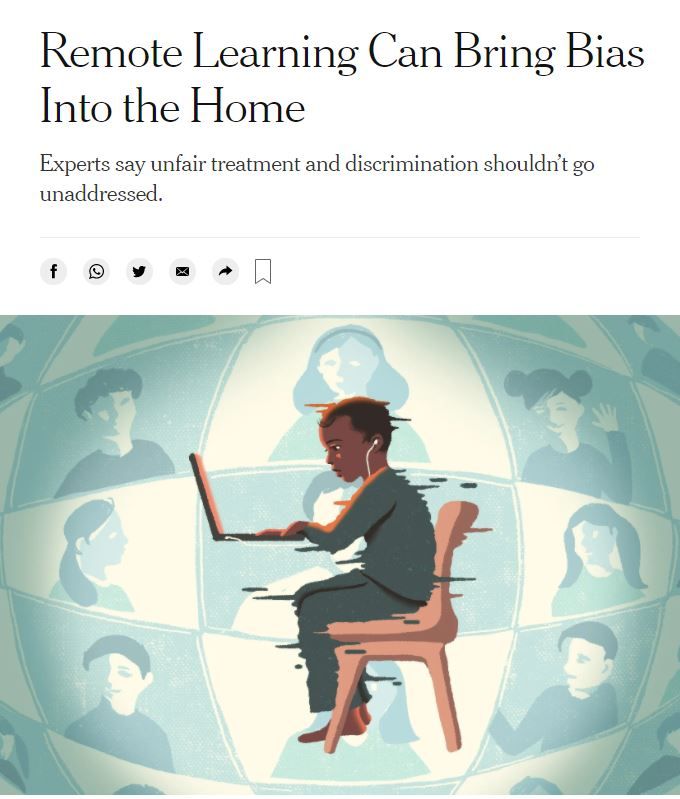Remote Learning and Microaggressions

In these COVID-19 pandemic times, we are facing a new area of concern with regard to Equity, Diversity, and Inclusion—the remote learning environment. With so many children out of their physical classrooms and engaging in classes via online learning, many parents are noticing how their children are being affected. This shift to online learning has exposed, once again, how bias, exclusion and racism are built into the system.
Gail Cornwall and Kelly Glass explored this for The New York Times, you can read the full article here.
Microaggressions expert Dr. Derald Wing Sue Ph.D. is featured in the article. SunShower Learning is honored to partner with him in our new course, Disarming Microaggressions with Derald Wing Sue Ph.D.In this article, he speaks to the unique challenges children face when encountering microaggressions:
“One of the most damaging things that happens to children is to feel paralyzed, to not know what to do,” Dr. Sue said. “You begin to think you are a coward … and it lowers your sense of self-efficacy and self-esteem.”
And children are particularly vulnerable to experiencing physical and mental symptoms from discriminatory experiences, “sleep loss, impulsivity, anxiety, anger, depressive symptoms and other emotional issues, as well as stomachaches and headaches — all conditions that suppress engagement in school and affect cognitive functioning.”
The article highlights three of Dr. Sue’s strategies, taught in SunShower’s new program, to help empower people who’ve been targeted by microaggressions and people who witness incidents:
- The comeback microintervention artfully exposes the hidden message. When Dr. Sue is complimented for speaking good English, he will reply: “Thank you, I would hope so, I was born here.” In this way, he’s countering the hidden message, you’re not from here, you’re an alien. Making the invisible visible is a powerful way to counter a microaggression
- Disarming the microaggression “can be as simple as deflecting it with a response like ‘I disagree,’ or ‘Whoa.’”
- Helping the person who said something understand the impact of their words or actions is what Dr. Sue calls “Educating the Offender”. You can assume their good intentions and talk about impact: “I know you meant that to be funny but that really hurt.”
Most importantly, as Jeff Mead, a teacher and former target of microaggressions points out, “You absolutely can’t leave the burden on the kids.” This introduces a fourth option for children:
Ask an adult for help.
The article quotes a parent, Cree Chancley, who says, “It brought back my own experiences in the South Carolina school system, and how racism is still a very real thing.” However, guiding her daughter through her own experiences with microaggressions in online learning has been helpful too:
After a lifetime of second-guessing her own discriminatory experiences, Chancley is thankful that virtual learning has allowed her to call out her daughter’s experiences. Now, she’s focused on helping her learn to recognize these microaggressions for herself. “When you’re gaslit all your own life, it’s a very long and tiring battle,” she said. “That’s not what I want for my child.”

